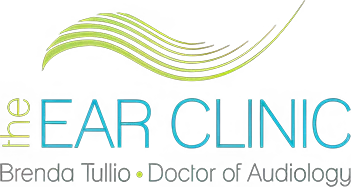Sep 3, 2021
|
Brenda Tullio, AuD
|
2 min read
Know Alzheimer’s Disease: Treat Hearing Loss in September during World Alzheimer’s Month

Have you heard about World Alzheimer’s Month? Each September, people from around the world participate in this global campaign to raise awareness about Alzheimer’s Disease and dementia. September 2021 is the 10th year of this awareness campaign.
World Alzheimer’s Month Explained
Each year, people come together to learn about Alzheimer’s Disease. They raise awareness about this and other forms of dementia, combat the stigma around dementia, and encourage those living with Alzheimer’s Disease.
This year’s theme is Know Dementia, Know Alzheimer’s. The campaign is focusing on the warning signs of dementia, shining a light on early symptoms, and encouraging people to find out more about dementia and Alzheimer’s. This can help people be prepared for their future or help them provide support to a loved one with dementia.
What Do You Know About Alzheimer’s Disease?
According to Alzheimer’s Disease International (ADI), more than 50 million people worldwide are currently living with dementia. And people spend a lot of time worrying about dementia. Almost 80% of people worry that they may develop dementia later in life.
Despite the prevalence of dementia and the concerns of millions of people, people around the world don’t know the warning signs of dementia. In fact, ADI estimates that three-quarters of people living with dementia don’t have a diagnosis.
This year’s campaign focuses on identifying the signs of dementia and Alzheimer’s Disease and encouraging people to seek a diagnosis. A timely diagnosis can help people and their families get more information about the disease, prepare for the future, plan for care, and adapt to changing needs.
Alzheimer’s Disease and Your Brain
Alzheimer’s Disease is a degenerative condition that affects the brain. Clusters of proteins, called plaques and tangles, start to grow in the brain. This disrupts connections between cells in the brain, damages nerve cells, and affects brain function. The most common symptom of dementia is memory loss, but over time, Alzheimer’s Disease or dementia impacts thinking, reasoning, emotion, and even behavior. The disease uniquely impacts each person, since each person has a unique story, personality, social situation, and overall health.
Early Symptoms of Dementia
The earliest symptoms of dementia include:
Memory loss: Short-term memory loss, or memory loss for things that happened recently, is among the most common symptoms of dementia. This kind of memory loss goes above and beyond forgetfulness.
Problems finding the right word: Having a hard time finding the right word is common for everyone. But for someone with dementia or Alzheimer’s Disease, this can make it very difficult to communicate. They may forget simple words, have a hard time putting a sentence together, or even substitute a strange or unusual word so it’s difficult to understand what they’re trying to get across.
Difficulty performing familiar tasks: Someone with dementia may have a hard time doing familiar or routine tasks. Even everyday tasks like getting dressed or making breakfast can be hard to do. They may get stuck partway through the task, and not be able to finish the task.
Getting disoriented: We’ve all had moments when we forget what day it is, but after a moment of concentration, we can remember what day it is and what we’re doing. Someone with dementia may be easily disoriented, forgetting where they are, what they’re doing, or what day or time it is.
Hearing Loss and Alzheimer’s Disease
What does Alzheimer’s Disease have to do with hearing loss? There are a number of risk factors that can increase your chances of developing dementia or Alzheimer’s Disease, such as hypertension, smoking, diabetes, social isolation, and low levels of physical activity. Hearing loss is another major risk factor for dementia. In fact, the risk of developing dementia or Alzheimer’s Disease triples for older adults with moderate hearing loss.
Hearing loss makes it hard to connect with family and friends. Hearing loss can be isolating, lead to lower rates of physical and mental activity, and leave a person feeling lonely and unmotivated. Hearing loss also affects the brain and can increase the rate of cognitive decline.
Treating Hearing Loss
That’s why treating hearing loss is so important. Hearing aids help your ears and brain hear clearly. You’ll have more energy to see family and friends and stay more active. This improves your brain health and even slows the development of Alzheimer’s Disease. Visit us today to explore your hearing aid options!

Sep 3, 2021
|
Brenda Tullio, AuD
|
2 min read
Why The Ear Clinic Chose to Support the On Air For Healthcare Radiothon
Why local healthcare and the Meaford Radiothon matter to The Ear Clinic

Sep 3, 2021
|
Brenda Tullio, AuD
|
2 min read
12 Days of Giving: Celebrating Meaford’s Community Heroes
The holiday season is all about giving back.

Sep 3, 2021
|
Brenda Tullio, AuD
|
2 min read
How Custom Hearing Aids Helped Restore Confidence and Peace of Mind: Barrie’s Story
Taking the first step with trusted professionals restores confidence.

Sep 3, 2021
|
Brenda Tullio, AuD
|
2 min read
How Alan Transformed His Hearing Health with Expert Care That Put Him First
Alan’s story starts like many others.: with turning up the volume. “I first realised there was something...
Get in Touch
Request a Callback
If you’re concerned about your hearing or that of a loved one, it’s natural to feel uncertain about what steps to take, who to see, or which advice to trust.
That’s where we come in. Simply fill out this form, and a friendly member of our team will give you a callback to answer your questions, provide professional guidance, and make the process clear and stress-free so you can get the help you need.
And remember – there’s no such thing as a silly question!


